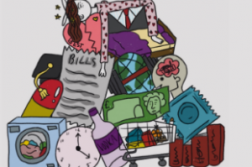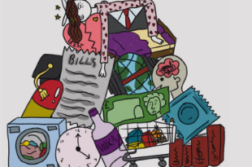Boohoo have recently come under fire, following claims made by a Sunday Times report that a factory used by the brand in Leicester was paying employees only £3.50 an hour, and forcing them to come into work “while sick with Covid-19”.
Quoted as being a form of modern ‘slavery’, the Sunday Times reporter worked undercover in the factory for two days, being told to expect this low wage (less than half the minimum wage), and experiencing a lack of any extra hygiene precautions, despite Leicester entering a localised lockdown. As a result, Next, ASOS and Zalando have all dropped Boohoo from their websites as a temporary precaution whilst investigations take place. Consequently, its shares were down 12% on Tuesday 7th July.
Boohoo have since released a public statement, claiming “we will not hesitate to immediately terminate relationships with any supplier who is found not to be acting within both the letter and spirit of our supplier code of conduct.” They also stated, if the reports were true, the working conditions were “totally unacceptable“. However, in approaching the reports in this manner of placing blame upon the factories, Boohoo failed to acknowledge that these working conditions are rife within the fast fashion industry that they continue to fuel. Rather than promise any real change, or accept that exploitation within the fashion industry is an issue they must tackle, they simply made a blanket statement and have since remained silent.
This encourages the ever-growing debate within the fashion industry of fast fashion over who should take responsibility for it, and how the industry can even begin dismantling such exploitative supply chains. As Labour MP Zarah Sultana of Coventry South put it, “billionaires exist because the working class is exploited“.
Boohoo is accused of selling clothes made by workers in Leicester who are paid just £3.50 an hour.
It's also in line to pay one of its billionaire bosses £50 million in bonuses.
This isn't a coincidence:
Billionaires exist because the working class is exploited.
— Zarah Sultana MP (@zarahsultana) July 6, 2020
It is important now more than ever that we put an end to fast fashion. Though this may seem a daunting task at first, there are plenty of ways in which you can practice slow fashion and ethical/sustainable shopping. For instance: shop locally rather than having clothes shipped across the globe; buy second hand clothing; support small businesses; buy from ethical/sustainable brands (Pantagonia, House of Sunny, Lucy & Yak, etc.); consider whether you will wear an item 30 times before throwing it out. These are just a few suggestions, but there are many ways to implement sustainable and ethical fashion into your purchasing habits. Here is a more detailed list on how to discover whether or not your favourite brands are good for humanity and the environment.
Also remember, brands want you to believe they are good for the world because they provide you with cheap clothing: but along the supply chain, people will be paying the price, and it won’t be the billionaires at the top. Here’s another tweet to illustrate this point, and the hilarity in ASOS removing Boohoo for their inhumane factories, despite ASOS themselves benefitting from very similar practices.
Asos dropping Boohoo because of exploitation https://t.co/5vQsR3kAUI pic.twitter.com/MyppvxQB27
— Ella! (@ellaadjoa) July 7, 2020



